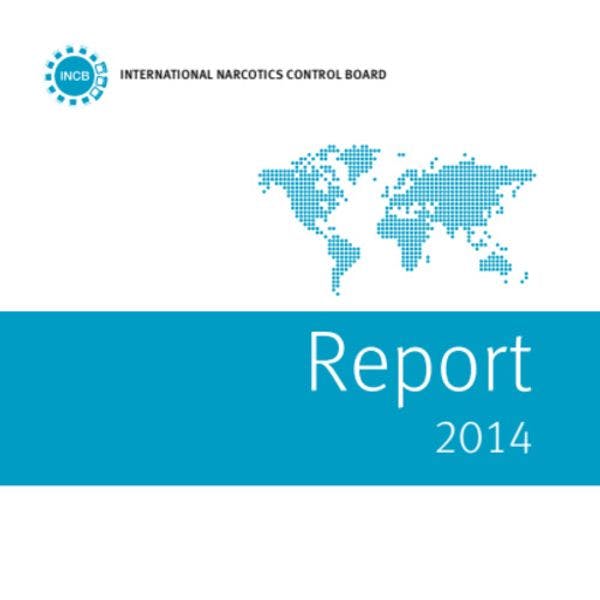Informe anual de la Junta Internacional de Fiscalización de Estupefacientes correspondiente a 2014
El informe anual ofrece un análisis de la JIFE sobre la situación actual con respecto a la fiscalización internacional de drogas. Este año, la JIFE ha adoptado una postura sin precedentes en materia de protección de los derechos humanos, sobre todo en cuanto a la imposición de la pena de muerte por delitos de drogas. Más información, en inglés, está disponible abajo.
Suscríbase a las Alertas mensuales del IDPC para recibir información sobre cuestiones relacionadas con políticas sobre drogas.
In facing the world drug problem, all countries nd their destinies intertwined. For over a century, the international community has recognized that this problem is one that cannot be addressed eectivelyif it is not addressed collectively. e United Nations drug control conventions were elaborated by the community of nations acting in concert. ey are the product of discussion and compromise and reect a widespread consensus among States which today is evidenced by the fact that nearly every country on Earth is party to them. e international drug control conventions are oen portrayed by their detractors as instruments of prohibition and punishment. Even the most cursory reading of these important documents reveals such an interpretation to be misguided. As reected in the preamble to the Single Convention on Narcotic Drugs of 1961.
The goal of the United Nations legal framework on drugs is the safeguarding of the health and welfare of humankind. In the pursuit of this important objective, the conventions regulate the licit trade in narcotic drugs and psychotropic substances and are designed to ensure that these substances are available for use in medical treatment to those who need them, regardless of where they live. In the conventions, States are enjoined to take measures to foster the prevention of drug abuse, treatment and social reintegration, including as alternatives to punitive sanctions. e conventions also provide a framework for extradition, mutual legal assistance and cooperation among States to counter drug tracking and the violence and suering with which this scourge is associated.
Like all international conventions, the United Nations drug control treaties lay out a set of binding legal norms and entrust States with the adoption of legal, administrative and policy measures to implement their treaty obligations. While the choice of these measures is the prerogative of States, such measures must respect the limits that the international community has set for itself in the international legal order. One of the most fundamental principles underpinning the international drug control framework, enshrined in both the 1961 Convention and in the Convention on Psychotropic Substances of 1971,2 is the limitation of use of narcotic drugs and psychotropic substances to medical and scientic purposes. is legal obligation is absolute and leaves no room for interpretation.
Also, as the Board has often reiterated, drug control measures do not exist in a vacuum; in their implementation of these measures, States must comply with their international human rights obligations. While the Board is heartened by the progress made by members of the international community in adopting drug control measures that are consistent with internationally recognized human rights standards, much remains to be done. at includes, for instance, steps to be taken in relation to the full implementation of the Convention on the Rights of the Child, in which States parties agreed to take all appropriate measures to protect children from the illicit use of narcotic drugs and psychotropic substances and to prevent the use of children in the illicit production and traf- cking of such substances. While the determination of specic sanctions applicable to drug-related oences remains the prerogative of States, the Board again encourages those States which retain and continue to impose the death penalty for drug-related oences to consider abolishing the death penalty for such offences.
In the run-up to the special session of the General Assembly on the world drug problem to be held in 2016, the international community should commit to carrying out a constructive international dialogue which is frank, inclusive, comprehensive and forward-looking. is dialogue must also be balanced, recognizing the signicant achievements made and identifying areas that are in need of improvement. rough its monitoring of the international drug control treaties, the Board will contribute to this endeavour.
Keep up-to-date with drug policy developments by subscribing to the IDPC Monthly Alert.
Descargas
Regiones
Perfiles relacionados
- International Narcotics Control Board (INCB)
